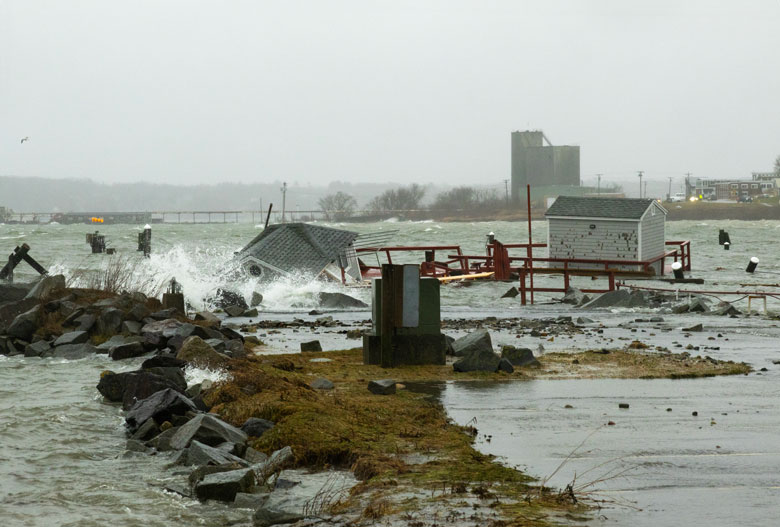Planning for a stormy future pays off

Some local leaders are crediting municipal sea level rise and climate resilence committees for giving their communities a head start in the race for millions of federal, state, and private dollars that are now heading for Maine’s coast.
“It’s really important to have this town infrastructure in place,” said Bill Zoellick, who chairs Gouldsboro’s Coastal Resilience Committee. “In most communities of our size, there’s absolutely no way they can have a paid planner on staff… so there’s no employee who can write grant proposals, track opportunities, and manage the follow-up reporting that’s required.”
Zoellick’s committee began as an ad hoc group of volunteers who built consensus around the preservation of shore access, clam flat restoration, and building more resilient infrastructure. After some early success securing state grants for their projects, the town “suddenly had the energy to bring this ad hoc group into its committee structure,” Zoellick said. And that, in turn, has increased the towns’s capacity to work with regional partners and win more state funding.
Published in The Working Waterfront on August 19, 2024


